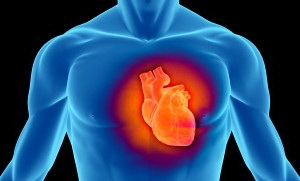Coronary Artery Bypass Grafting (CABG)

Doctors:
DR.Abdorrahman
Coronary artery bypass grafting (CABG) is a type of surgery that improves blood flow to the heart. Surgeons use CABG to treat people who have severe coronary heart disease (CHD). CHD is a disease in which a waxy substance called plaque (plak) builds up inside the coronary arteries. These arteries supply oxygen-rich blood to your heart. Over time, plaque can harden or rupture (break open). Hardened plaque narrows the coronary arteries and reduces the flow of oxygen-rich blood to the heart. This can cause chest pain or discomfort called angina (an-JI-nuh or AN-juh-nuh). If the plaque ruptures, a blood clot can form on its surface.
A large blood clot can mostly or completely block blood flow through a coronary artery. This is the most common cause of a heart attack. Over time, ruptured plaque also hardens and narrows the coronary arteries. CABG is one treatment for CHD. During CABG, a healthy artery or vein from the body is connected, or grafted, to the blocked coronary artery. The grafted artery or vein bypasses (that is, goes around) the blocked portion of the coronary artery. This creates a new path for oxygen-rich blood to flow to the heart muscle. Surgeons can bypass multiple coronary arteries during one surgery. Figure A shows the location of the heart. Figure B shows how vein and artery bypass grafts are attached to the heart.
Valve Replacement

Doctors
DR.abdorrahman
Currently, no medicines can cure heart valve disease. However, lifestyle changes and medicines often can successfully treat symptoms and delay problems for many years. Eventually, though, you may need surgery to repair or replace a faulty heart valve.
The goals of treating heart valve disease might include:
· Preventing, treating, or relieving the symptoms of other related heart conditions.
· Protecting heart valves from further damage.
· Repairing or replacing faulty valves when they cause severe symptoms or become life threatening. Replacement valves can be man-made or biological.
Repairing or Replacing Heart Valves
Your doctor may recommend repairing or replacing your heart valve(s), even if your heart valve disease isn’t causing symptoms. Repairing or replacing a valve can prevent lasting damage to your heart and sudden death.
Having heart valve repair or replacement depends on many factors, including:The severity of your valve disease.Your age and general health.Whether you need heart surgery for other conditions, such as bypass surgery to treat CHD. Bypass surgery and valve surgery can be done at the same time.
When possible, heart valve repair is preferred over heart valve replacement. Valve repair preserves the strength and function of the heart muscle. People who have valve repair also have a lower risk of IE after the surgery, and they don’t need to take blood-thinning medicines for the rest of their lives.
However, heart valve repair surgery is harder to do than valve replacement. Also, not all valves can be repaired. Mitral valves often can be repaired. Aortic and pulmonary valves often have to be replaced.
Angioplasty

Doctors:
DR.Sajedi
DR.Mirzae
|